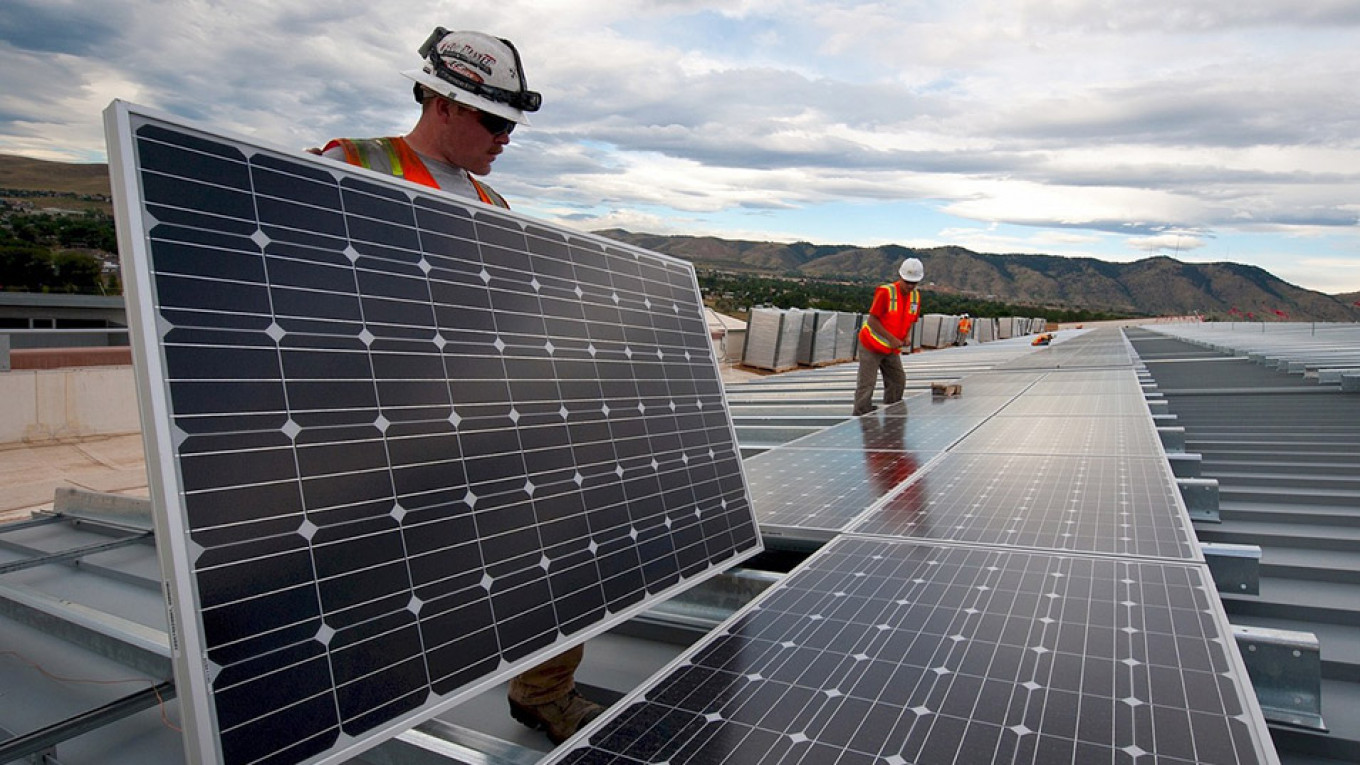
Russia is considering banning foreign companies from taking a lead role in designing and building the country’s green energy infrastructure, Russian daily Vedomosti said on Wednesday.
New proposals currently being discussed would block contracts for new wind and solar farms, along with other renewable energy production projects, from being awarded to non-Russian entities.
Analysts say the proposals would lead to higher costs for producing new sources of clean energy in Russia.
Since Russian companies do not have the technology or knowledge to go it alone, they say, the proposals would add one more — Russian — firm at the top of the supply chain, making infrastructure investment projects even more expensive.
Nearly all of Russia’s wind and solar power stations are current designed by foreign companies, such as China’s Amur Sirius, Italy’s Enel, Finnish firm Fortum and German engineering giant Siemens.
“It’s a little bit astonishing,” Dr Thomas Heidemann, a partner at law firm CMS who focuses on the Russian renewable sector told The Moscow Times.
“It would lead to even more expensive energy production costs since the fact that foreigners cannot do the planning does not lead to a situation where Russian entities would be able to do it. That means in effect there will be Russina entities which will be founded for the purposes of providing such services. But as they cannot do it by themselves, they will sub-contract, and go back to the same foreign entities.”
The Russian Association of Wind Power said the government is currently consulting with businesses on the proposals. Its president Igor Bryzgunov told The Moscow Times the prospect of a ban on foreign involvement becoming law is small, since it would be too disruptive to a market which is heavily reliant on a complex mix of both Russian and foreign companies and investors.
If enforced, a ban would limit innovation in the green energy sector and make it almost “impossible” to develop technology-dependent renewable infrastructure, added the Association for the Development of Renewable Energy.
